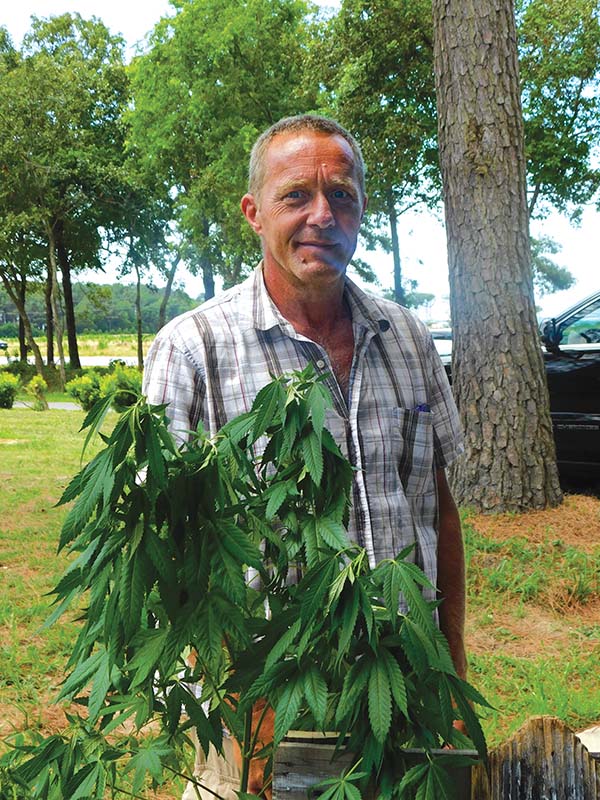
By Stefanie Jackson – The owner of Dutch Hemp Farms, which is moving from Virginia Beach, Va., to Cheriton, is proof that sometimes people find their callings after their careers are over.
“I wanted to give something back,” said Wilco Koelewijn (who says his last name is pronounced “cool wine”).
As a child, he worked on his father’s farm in the Netherlands, and he’s returned to his roots by starting Dutch Hemp Farms after his retirement from NATO (North Atlantic Treaty Organization) in Norfolk, Va., where he was a resource manager.
Hemp can be used to make a variety of products, including paper, plastic, clothing, food, fuel, and a host of others, but Koelewijn grows it for its medicinal and therapeutic benefits.
Hemp is a plant from the cannabis family, like marijuana. Most varieties of hemp and marijuana contain two similar compounds that provide medicinal benefits – CBD, or cannabidiol, and THC, or tetrahydrocannabinol – but THC is psychoactive and CBD is not.
The legal definition of hemp is cannabis that contains less than 0.3% THC – in other words, not enough to produce a “high” as a side effect.
That definition is provided by the U.S. Farm Bill that Congress passed in December 2018, which made growing hemp legal for the first time since 1937.
Since July 2019, Koelewijn has been conducting an “experiment” in growing hemp, which started in his backyard in Virginia Beach and moved into two greenhouses.
Hemp’s regular growing season is about three months, from July to October, but by moving the plant indoors, it can generate up to four crops per year.
The hemp farm is moving to about three acres in Cheriton; some hemp will grow in four greenhouses and the rest will grow outside.
Why move the farm to the Eastern Shore? The land is affordable and the area is more remote, providing more protection from possible theft – hemp is often mistaken for marijuana, Koelewijn explained.
And why grow hemp at all? He doesn’t need the money – he has a pension. But he wants to help people, to enable them to cope with their suffering.
Koelewijn knows firsthand that many farmers live a hard life, pushing themselves to their physical limits, often resulting in chronic injuries and pain.
He wants to make CBD products with guaranteed strength that are affordable to blue collar workers, Koelewijn said.
All Dutch Hemp Farms products are tested so consumers can be sure they’re getting the amount of CBD stated on the label.
Koelewijn makes everything he sells, including CBD oil, salve, and smokable hemp products.
He wants to get more involved in the processing side of the business because hemp farmers aren’t getting their fair share of the profits from their crops, he said.
Growers often send their hemp flowers for processing to another state, like Colorado, and the processor gets 50% of the profits.
Koelewijn plans to supply “educational tools” at his farm so others can learn more about growing and processing hemp.
His focus is on the entire life cycle of the plant, starting with the seeds, growing hemp, processing it and selling the products, and hopefully sharing his skills and knowledge with other farmers in a “cooperative” way.
He also plans to donate around 10% of Dutch Hemp Farms’ profits to charity so research can continue on CBD’s benefits to patients with a wide range of medical conditions, including arthritis, Alzheimer’s disease, and PTSD (post-traumatic stress disorder).
He noted that 2018 marked the first time the U.S. Food and Drug Administration approved a medication containing CBD, used to treat patients with epilepsy.
His friend and Dutch Hemp Farms’ executive officer, Katie Smith, says CBD may also help people who have cancer, inflammation, anxiety, or trouble sleeping.
For more information about Dutch Hemp Farms, email [email protected]


